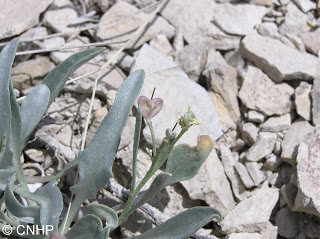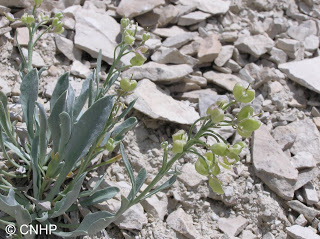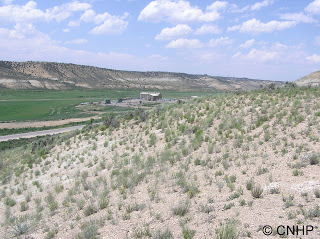CNHP botany team leader Jill Handwerk was recently in Rio Blanco County looking for one of Colorado’s rare plant species, and took these photos. Physaria obcordata, the Piceance Basin twinpod, is a perennial member of the Brassicaceae or mustard family. The specific epithet obcordata refers to the heart-shaped ‘silique’ (what mustard fruits are called). These little plants have flowering stems 4-7 inches tall that arise from a basal tuft of silvery leaves. Flowers are yellow, and typically present in May and June. This species is known only from the Piceance Basin, where it occurs primarily on the shales of the Thirteenmile Creek Tongue and the Parachute Creek Member of the Green River Formation. The Piceance Basin twinpod was listed as Threatened under the Endangered Species Act in 1990.

A nice view of the heart-shaped fruit.

Although Jill didn’t see the plants flowering, fruits were plentiful.

The shaley home of Piceance Basin twinpod, with a scenic view of local energy development facilities.




